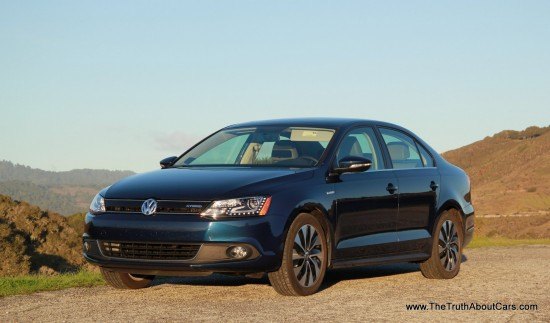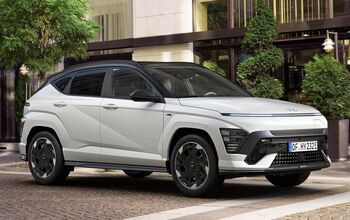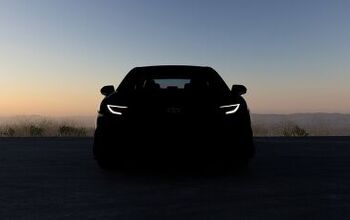Volkswagen Looks Within to Solve "The American Problem"
Despite giving the old college try for decades, Volkswagen is still confounded by the lack of cachet their namesake brand holds among the hearts and minds of many an American. With VW of America CEO Jonathan Browning stepping down and returning to the United Kingdom at the end of this year, the Wolfsburg automaker hope one of their own, successor Michael Horn, will be able to finally crack the code of success in the United States.
Volkswagen AG has set a goal of selling 800,000 units in the U.S. by 2018 with a strategy of four vehicles built to American tastes. With eight consecutive months of losses due to poor sales of the current lineup, the automaker has their work cut-out for them. According to insiders and U.S. dealers, Horn’s experience with the culture on the German side could be just what is needed to help determine a proper course of action with the American market.
In addition to knowing how to communicate to his bosses in Wolfsburg in a manner Browning never could, Horn also brings product development experience to the table, helping to launch the Touraeg and Phaeton as head of sales and marketing of VW’s premium units. The aforementioned strategy has already been implemented in part, with redesigns of both the Jetta and Passat, but no green light has been given to the remaining two vehicles, a compact and a midsize SUV. Horn’s voice could make all the difference in bringing the SUVs to market, especially if they are aimed at Toyota and Honda customers instead of BMW and Lexus.
For now, Horn and VW of America COO Mark McNabb will together oversee the launch of the next-generation Golf and its variants in the automaker’s Puebla, Mexico factory. The hatchback will go on sale this coming spring.
More by TTAC Staff


































Comments
Join the conversation
I'd rather VW not try to be a sales juggernaut here. Go back to making cars with the quality feel of the MkV Jettas, Golfs, CCs, bake in enough mechanical reliability to make that quality be more than skin deep, add a CUV for revenue's sake, and be happy with the modest sales figures. Mazda isn't trying to take the sales crowns from Toyota and GM and they can actually make interesting cars because of it. I have a 2010 Sportwagen with no fancy-pants Euro-boy diesel, just the 5 cylinder. And it's an unbelievably nice car for only $20K. And by all accounts this generation is holding up far better than the MKIV. I respect VW for making this car, and if it isn't the type of vehicle the American market wants in quantity, then I'd rather VW stay small here than build something that feels like an Elantra. But then I'm not a VW shareholder, am I?
Lost in this VW hate fest is that VW is moving alot of cars in the US compared to their history. 2012 they sold over 400k cars - which beat every single year in the 2000's.. They hit almost double their 2006 number. And they have a rather dull lineup - its like Honda's lineup - only duller.
Coincidentially, I saw Tiguan today. It was towing a dirt bike on a little trailer. This post made me pay attention, and guys: Tiguan is not small. It's about the size of Highlander. It's not as massive as D3-based Explorer or enormous GM "CUVs", but it's not sized as Rogue or even CR-V. I don't know about the price or reliability, but I think VW sized it just right. The may need 2 more CUVs: 1 larger (like Pilot), one smaller (like Outlander), but Tiguan is fiiiiine. Very attractive design, too -- for the length of warranty or lease. P.S. Wait a moment, don't they already have a huge CUV that shares the platform with Panamera? I think it was called "Touareg". Whatever happened to that one?
The problem with VW is less to do with their percieved realiablity issues, and more to do that for years they have marketed it as a semi premium brand. Basically a Audi but cheaper. And for years one could say that they did achieve it. Now there is far more competition in the market which is pushing them out. They can no longer market themselves as a premium brand since the majority of buyers are looking for a affordable car. They priced themselves out of the market. Now they are slowly understanding that they have to broaden their appeal by making more affordable cars for the masses. Another is that the majority of VW buyers are women, including the Golf, GTI, and Passet. They need to start marketing cars to men, especially in middle America.